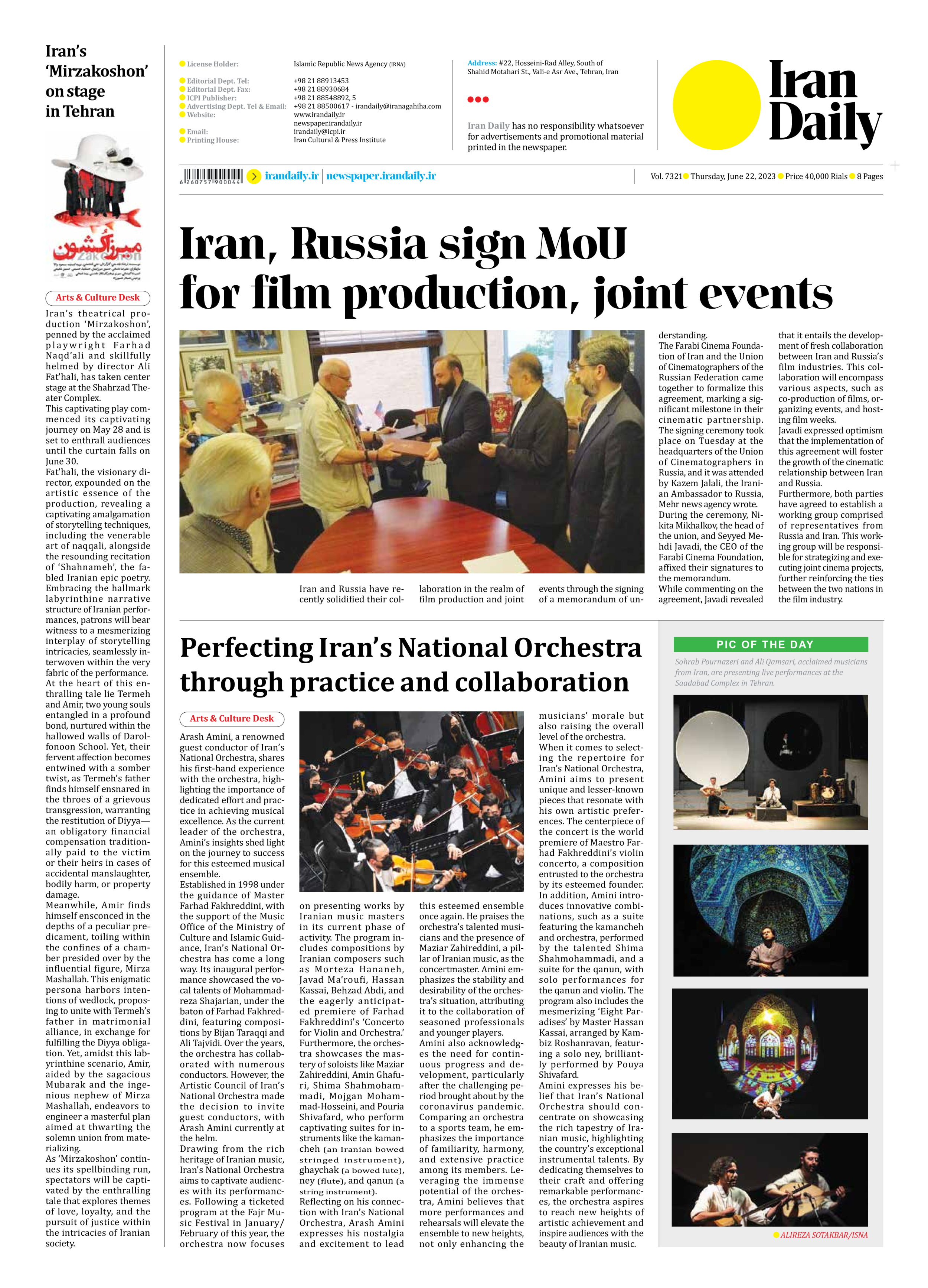
Perfecting Iran’s National Orchestra through practice and collaboration
Arash Amini, a renowned guest conductor of Iran’s National Orchestra, shares his first-hand experience with the orchestra, highlighting the importance of dedicated effort and practice in achieving musical excellence. As the current leader of the orchestra, Amini’s insights shed light on the journey to success for this esteemed musical ensemble.
Established in 1998 under the guidance of Master Farhad Fakhreddini, with the support of the Music Office of the Ministry of Culture and Islamic Guidance, Iran’s National Orchestra has come a long way. Its inaugural performance showcased the vocal talents of Mohammadreza Shajarian, under the baton of Farhad Fakhreddini, featuring compositions by Bijan Taraqqi and Ali Tajvidi. Over the years, the orchestra has collaborated with numerous conductors. However, the Artistic Council of Iran’s National Orchestra made the decision to invite guest conductors, with Arash Amini currently at the helm.
Drawing from the rich heritage of Iranian music, Iran’s National Orchestra aims to captivate audiences with its performances. Following a ticketed program at the Fajr Music Festival in January/February of this year, the orchestra now focuses on presenting works by Iranian music masters in its current phase of activity. The program includes compositions by Iranian composers such as Morteza Hananeh, Javad Ma’roufi, Hassan Kassai, Behzad Abdi, and the eagerly anticipated premiere of Farhad Fakhreddini’s ‘Concerto for Violin and Orchestra.’ Furthermore, the orchestra showcases the mastery of soloists like Maziar Zahireddini, Amin Ghafuri, Shima Shahmohammadi, Mojgan Mohammad-Hosseini, and Pouria Shivafard, who perform captivating suites for instruments like the kamancheh (an Iranian bowed stringed instrument), ghaychak (a bowed lute), ney (flute), and qanun (a string instrument).
Reflecting on his connection with Iran’s National Orchestra, Arash Amini expresses his nostalgia and excitement to lead this esteemed ensemble once again. He praises the orchestra’s talented musicians and the presence of Maziar Zahireddini, a pillar of Iranian music, as the concertmaster. Amini emphasizes the stability and desirability of the orchestra’s situation, attributing it to the collaboration of seasoned professionals and younger players.
Amini also acknowledges the need for continuous progress and development, particularly after the challenging period brought about by the coronavirus pandemic. Comparing an orchestra to a sports team, he emphasizes the importance of familiarity, harmony, and extensive practice among its members. Leveraging the immense potential of the orchestra, Amini believes that more performances and rehearsals will elevate the ensemble to new heights, not only enhancing the musicians’ morale but also raising the overall level of the orchestra.
When it comes to selecting the repertoire for Iran’s National Orchestra, Amini aims to present unique and lesser-known pieces that resonate with his own artistic preferences. The centerpiece of the concert is the world premiere of Maestro Farhad Fakhreddini’s violin concerto, a composition entrusted to the orchestra by its esteemed founder. In addition, Amini introduces innovative combinations, such as a suite featuring the kamancheh and orchestra, performed by the talented Shima Shahmohammadi, and a suite for the qanun, with solo performances for the qanun and violin. The program also includes the mesmerizing ‘Eight Paradises’ by Master Hassan Kassai, arranged by Kambiz Roshanravan, featuring a solo ney, brilliantly performed by Pouya Shivafard.
Amini expresses his belief that Iran’s National Orchestra should concentrate on showcasing the rich tapestry of Iranian music, highlighting the country’s exceptional instrumental talents. By dedicating themselves to their craft and offering remarkable performances, the orchestra aspires to reach new heights of artistic achievement and inspire audiences with the beauty of Iranian music.







